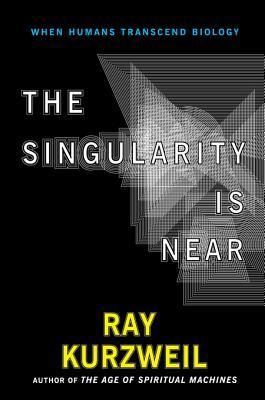
The Singularity Is Near
When Humans Transcend Biology
کتاب های مرتبط
- اطلاعات
- نقد و بررسی
- دیدگاه کاربران
نقد و بررسی

April 25, 1988
With this revised version of a 1975 novella, acclaimed novelist Banks (Continental Drift) lampoons the American family in a wonderfully funny range of literary styles. Family Life opens in the macho mode of the tall tale cum horse opera, replete with a patrilineal catalogue of brawling heroes who indulge in their boys-will-be-boys exploits. With marriage, a man gains the rank of royalty. King Egress the Hearty, embarrassed now about past escapades with his hippie buddy Loon, lives in an American hometown with his "right-on queen.'' But she cavorts with the wine steward. The princes Orgone, Dread and Egress Jr. get into teenage scrapes, hunting girls and cougar, taking hash and coke, drinking and dying. When the Queen, aka Naomi Ruth, writes her own novel, rendered here in a chapter titled ``Remember Me to Camelot,'' she rephrases events in a tone of sentimental confessional relish. She tells about her cheerleader's crush on football captain Rex, their marriage, mobile home and three boys. But once Rex goes off to Vietnam, Naomi quickly gets liberated. How Rex and Naomi fare afterward emerges as a series of blase encounters in increasingly glitzy places. Exuberant and irreverent, Family Life bares a knife-edge of social satire.

November 15, 2004
Former LJ columnist Kurzweil (also winner of a National Medal of Technology) on what he calls the singularity: the point when we merge with machines, moving from reality to virtual reality and solving issues like aging, pollution, and world hunger. Whew! With a five-city author tour.
Copyright 2004 Library Journal, LLC Used with permission.

September 15, 2005
Continuing the themes of " The Age of Spiritual Machines " (1999), Kurzweil further expounds his conviction that the human being will be succeeded by a superintelligent entity that is partly biological, partly computerized. Welcoming this prospect, and regarding it as inevitable, Kurzweil plunges into contemporary technological arenas, particularly genetics, nanotechnology, and robotics. Citing examples from medical devices to military weapons in which human control is increasingly detached from the autonomy of machines, Kurzweil stresses that trends are accelerating in terms of miniaturization and computational power. Eventually, smallness and speed reach a point of development, a "singularity," with implications Kurzweil says even he cannot imagine. Disinclined to categorize his views as dystopian or utopian, the author recognizes that his vision is profoundly threatening to concepts of human nature and individuality. A closing section on philosophy and ethics accordingly addresses objections to his optimistic predictions. An involved presentation, this is best for readers of the wide-angle, journalistic treatment " Radical Evolution" (2005), by Joel Garreau. (Reprinted with permission of Booklist, copyright 2005, American Library Association.)

























دیدگاه کاربران